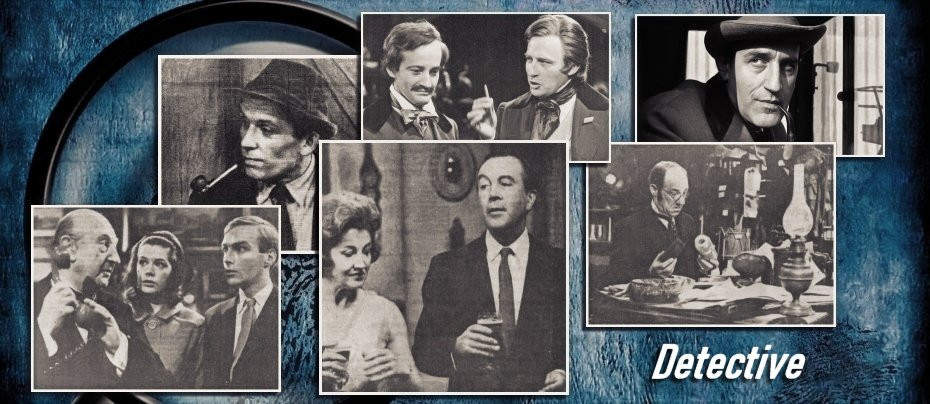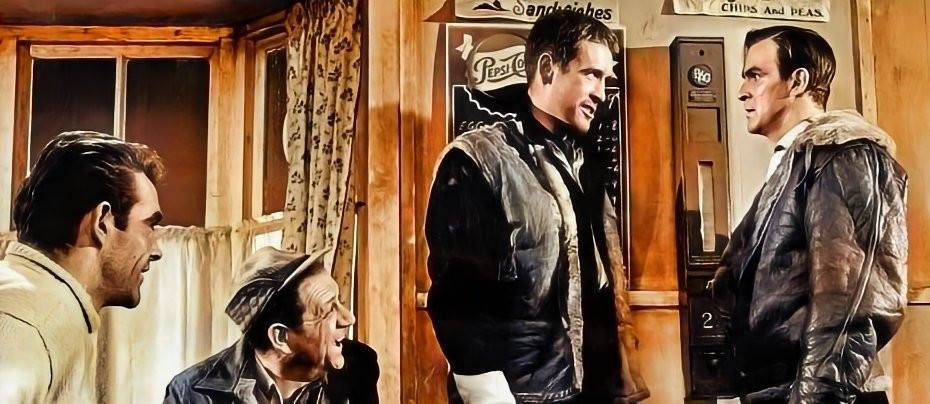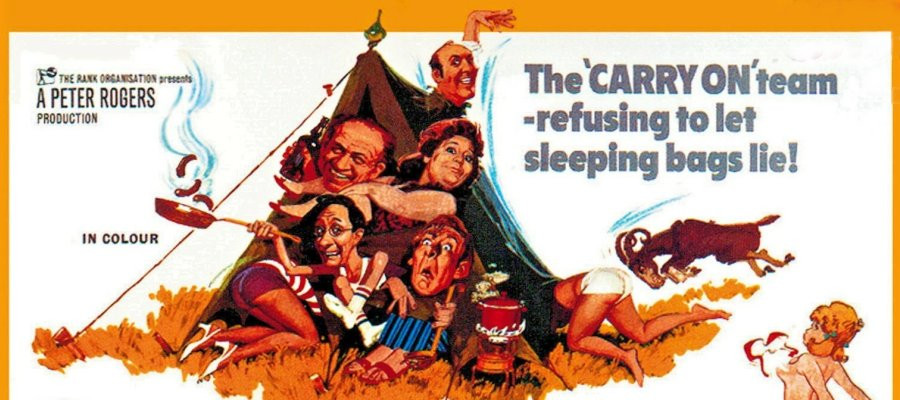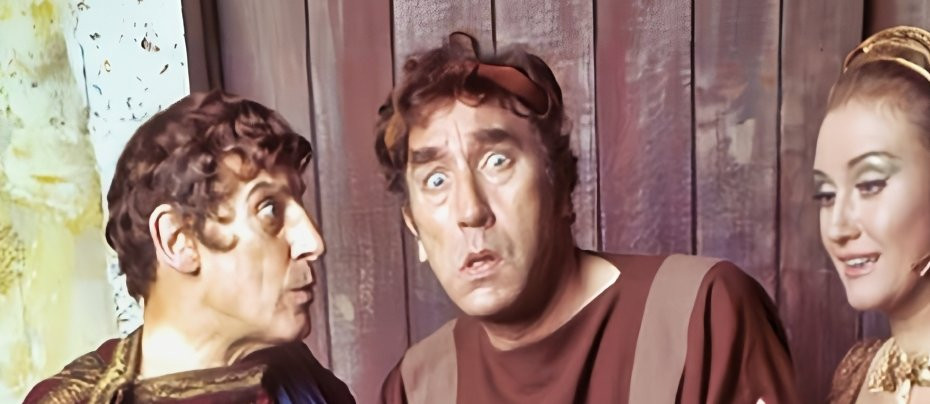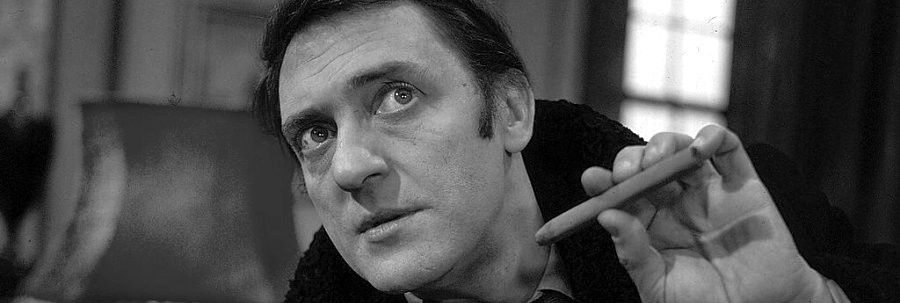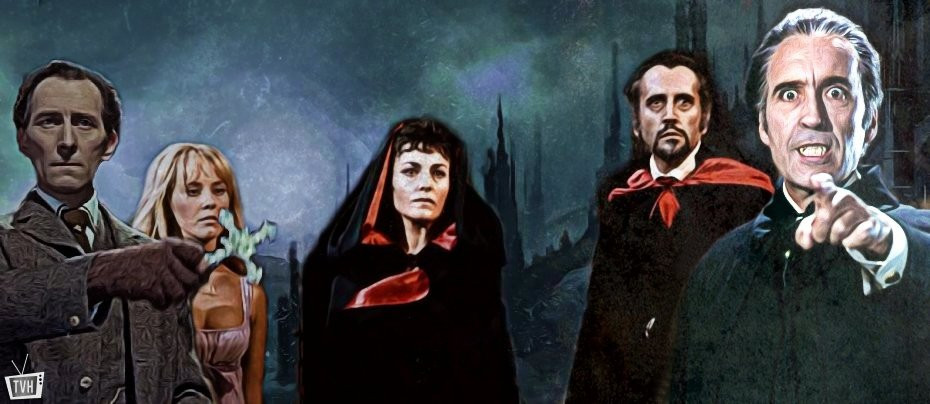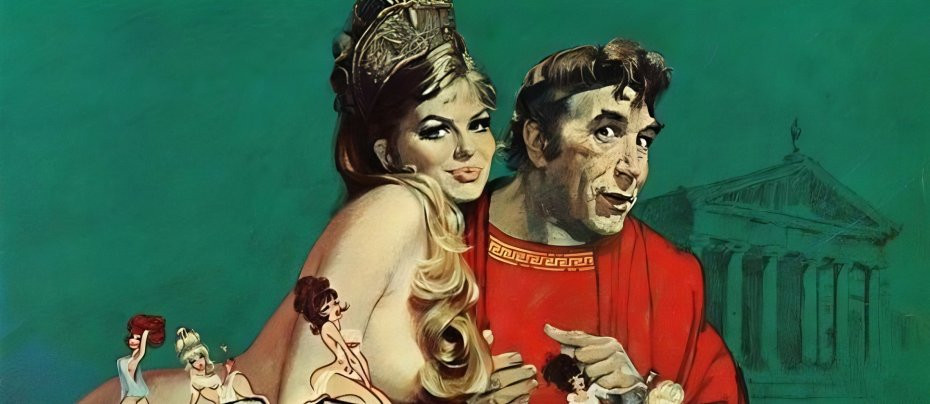
Up Pompeii on the Big Screen
‘Up Pompeii was never going to be what you would call highbrow comedy’
Review of the 1971 film spin-off by Brian Slade
Now then…before we start the thing you’ve come here to read – you know, the actual article thing…no don’t, it might be one of your own. Now, titter ye not – you shut yer face.
Frankie Howerd had a remarkable quality of making a line, sentence or routine stretch out with his infamous collection of carefully placed alleged ad-libs. It worked on stage to perfection over his many years at the top and taking the approach of smashing the fourth wall to oblivion, it would work well on television. But in 1970 it was decided to try transferring our Francis to the movie theatre. A brave move, but one that worked well at the box office in the guise of the movie incarnation of Up Pompeii!.

The movie starts in standard Frankie fashion – talking directly to the audience, although in a somewhat more surreal manner as he appears over the back of model scenery and points to himself down below in the marketplace. Here, Howerd’s Lurcio is finding things for his master’s upcoming orgy – celebrating the festival of the prolific goose. While in the market, Cassandra (Rita Webb) appears to address the wicked people of Pompeii. Her demands that the residents repent of their sins or suffer the wrath of the Gods are met with derision, drawing Howerd’s first stock line; ‘don’t laugh, it’s wicked to mock the afflicted.’ Cassandra warns of impending doom for all sinners.
While Lurcio is shopping, he finds his cart and ass (the four-legged kind) blocking the way of a Roman soldier, Bilius (Lance Percival). Despite being told to move, Lurcio causes mayhem when Bilius falls to the ground and loses his master’s scroll. It’s been picked up by Lurcio mistakenly amongst his cucumbers.
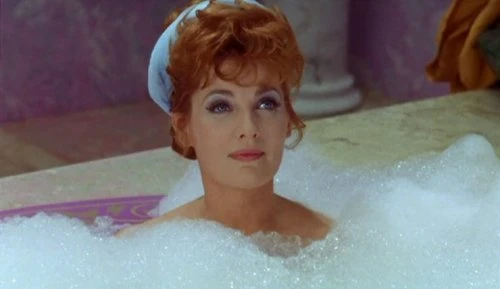
Lurcio returns home with his haul where he is met by his mistress, Amonia (Barbara Murray). His master also awaits, Ludicrus Sextus (Michael Hordern) as he prepares for an upcoming speech. Seemingly oblivious to the sexual nature of his own encounters and orgies, he is preparing to address the people of Pompeii on the subject of declining morals. ‘Friends, Romans, Countrymen – lend me your feet,’ he begins, believing that feet is more appropriate when he wants to stamp something out. While he discusses his upcoming plea to the citizens, his daughter Erotica (Madeline Smith) is outside finding her own way in debauchery. And despite all this carnal activity, poor Nausius (Royce Mills) is able only to write questionable poetry as he tries to woo a lady…seemingly having trouble with finding rhymes to such words as nipple and Venus!
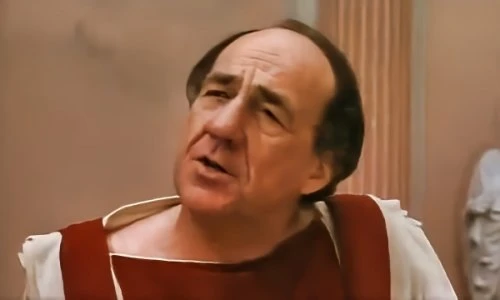
It would seem at this point that Lurcio has no troubles beyond keeping his master’s family content, but his world is soon turned upside down. At the palace of Prosperous Maximus, Prosperous himself (Bill Fraser) is planning an assassination of Emperor Nero (Patrick Cargill). The problem is that the scroll lost by Bilius contained his plans, and so Bilius is sent to recover it. Unfortunately, while he does indeed retrieve a scroll from Lurcio, it turns out to be the speech on morality, while Sextus is in possession of the plan to assassinate Nero.
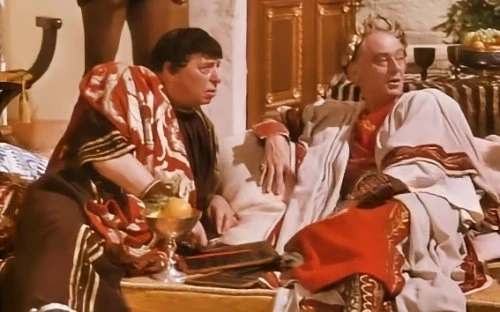
With knowledge in his hands, Sextus decides to head to the palace and demand Prosperous resign as Pro Consul of Pompeii…but that’s exactly what Sextus is expecting, so he uses his wife Voluptua (Julie Ege) as bait, in order that he can find Sextus with his wife and kill him in a fit of jealous rage. Realising what will happen, Lurcio follows his master and spikes the pair’s drinks, dragging Sextus away and standing in for him. When found in the compromising position, Lurcio is thrown in the catacombs. He is facing near certain death as he is forced into a wrestling match with unbeatable champion, Gorgo (Bernard Bresslaw).

As luck would have it, while in a headlock Lurcio establishes that he was once a rower with Gorgo on the Rome to Naples ferry. They strike a deal that sees Lurcio win so that a tired Gorgo can get some time off. Hence Lurcio finds himself now working for Nero, who knows of the conspiracy to murder him, and he uses Lurcio to try and bring down the assassination plot by murdering Prosperus before he strikes.
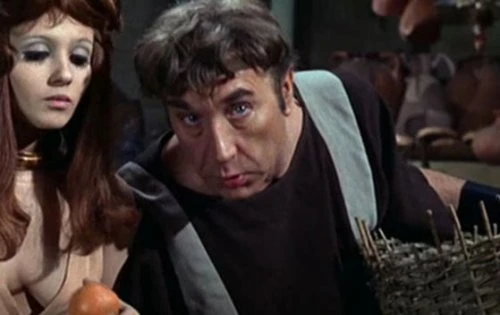
Lurcio is of course a coward and doesn’t wish to carry out his new master’s orders, but he doesn’t particularly like the alternative – having his gizzards cut out and fed to the crows. Unfortunately, that is exactly the same fate Prosperous threatens him with if Lurcio doesn’t kill Nero.
Lurcio is in an impossible position, but his fate is far worse than either Nero or Prosperous had threatened. Cassandra’s warnings come true as Vesuvius erupts to destroy Pompeii and mummify its inhabitants.
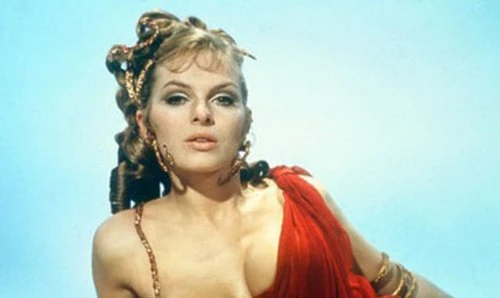
Up Pompeii was never going to be what you would call highbrow comedy. As much a sex romp as it was an extension of the television show, there is flesh aplenty and enough double entendres to make the Carry On… writers blush. But it is saved by Howerd himself. Maintaining the approach of talking directly to the audience works because he is able to mock the quality of jokes just as the great man did in his stand-up routines throughout the years. ‘I’m a miserable pleader,’ he announces at one point, before looking at the camera apologetically to concede, ‘oh wait, I’ve done that gag.’

The movie itself finished with 1970s Howerd taking a party of tourists around the ruins of Pompeii, with each of the main cast back as part of the touring party. Of that cast, Holden and Cargill added some weight to proceedings while each of the ladies does their best in a film that offers women as little more than playthings or enticements, but still somehow manages to show that they are the intelligent ones. At the 1971 box office Up Pompeii stood up well and brought forth two follow-ups at other ages, showing that Howerd’s unique brand of comedy was just as much appreciated by cinema audiences as it was in stage and the small screen.
Published on March 11th, 2024. Written by Brian Slade for Television Heaven.


